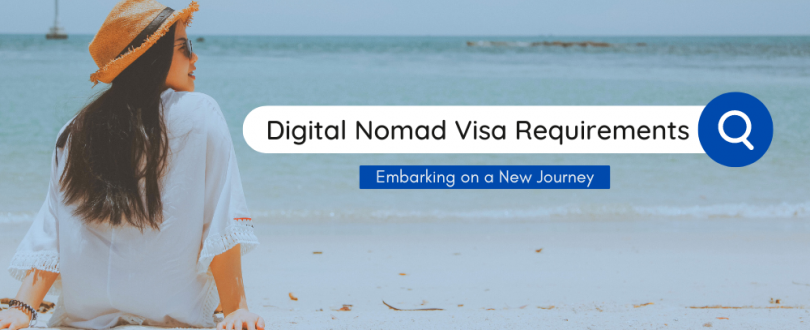
What Are Digital Nomad Visas?
Digital nomad visas let you work remotely in another country, usually for a job or business based elsewhere. They’re perfect for folks who want to live and work wherever they please.
These visas often let you stay in the host country for one to two years, with the option to extend up to five years if you meet the requirements. Processing times can vary, but it usually takes about a month.
Top Spots for Digital Nomads
Some countries are hotspots for digital nomads because of their low taxes, fast internet, affordable living, and good healthcare. According to the VisaGuide.World Digital Nomad Index, here are some top picks:
| Country | Perks |
|---|---|
| Spain | Great healthcare, lively culture, and speedy internet |
| Argentina | Cheap living and rich culture |
| Romania | Low cost of living and fast internet |
| UAE | No income tax and a luxurious lifestyle |
| Croatia | Beautiful scenery and friendly digital nomad policies |
These places offer a mix of practicality and fun, making them ideal for digital nomads who want to balance work and play.
By knowing what digital nomad visas are and checking out popular destinations, you can make smart choices about where to start your remote work adventure.
Digital Nomad Visa Requirements
Cost and Duration
Planning to live the digital nomad life? Let’s talk about the costs and how long you can stay in different countries. Prices and durations can be all over the map, so here’s a quick rundown:
| Country | Visa Cost | Duration | Extension Possibility |
|---|---|---|---|
| Barbados | $2,000 (individual), $3,000 (family) | 1 year | Yes |
| Antigua and Barbuda | $1,500 (individual), $3,000 (family) | 2 years | Yes |
| Georgia | Free | 1 year | Yes |
| Czech Republic | €223 | 1 year | Up to 2 years |
| Portugal | €80 (temporary stay), €165 (residence permit) | 1 year | Up to 5 years |
Sources: VisaGuide.World
Usually, it takes about a month to get these visas sorted, but it can change depending on where you’re headed.
Income and Financial Proof
To snag a digital nomad visa, you gotta show you can support yourself. Different countries have different rules about how much you need to make and what kind of proof you need to show.
| Country | Required Income | Financial Proof |
|---|---|---|
| Czech Republic | €5,767 annually | Bank statements, employment contracts |
| Portugal | €3,280 monthly | Bank statements, pay slips, tax returns |
Sources: Global Citizen Solutions
Make sure your financial documents are up-to-date and accurate. This could mean showing bank statements, employment contracts, or tax returns to prove you meet the income requirements of your chosen country.
Visa Options for Digital Nomads
Costa Rica’s Rentista Visa
Costa Rica’s Rentista Visa is a hit among digital nomads who want to soak up the country’s natural beauty and lively culture. This visa lets you stay in Costa Rica for two years, with a chance to extend your stay.
To get the Rentista Visa, you need to show a steady monthly income of about $2,500. You can prove this income through bank statements or investment records.
Costa Rica is also working on a specific digital nomad visa, which should be available soon. This visa will initially be for one year but can be extended up to two years.
| Requirement | Details |
|---|---|
| Income Proof | $2,500/month |
| Visa Duration | 2 years (extendable) |
| Type | Rentista (Digital Nomad Visa in development) |
Portugal’s Digital Nomad Visa
Portugal is another favorite for digital nomads, offering a Digital Nomad Visa that caters to remote workers. This visa allows you to live and work in Portugal, enjoying its rich history, stunning scenery, and great weather.
To qualify for Portugal’s Digital Nomad Visa, you need to show a stable income, usually around €1,070 per month. You also need health insurance, a clean criminal record, proof of accommodation in Portugal, and enough funds to support yourself during your stay.
| Requirement | Details |
|---|---|
| Income Proof | €1,070/month |
| Visa Duration | 1 year (extendable up to 2 years) |
| Other Requirements | Health insurance, clean criminal record, proof of accommodation |
Knowing the requirements and options for countries like Costa Rica and Portugal helps digital nomads choose the best place to apply for their visas and start their new adventures.
How to Nail Your Digital Nomad Visa Application
So, you’re dreaming of working from a beach in Bali or a café in Paris? Let’s break down the nitty-gritty of getting that digital nomad visa. Here’s what you need to know to make the process as smooth as possible.

What You Need and How to Get It
Getting a digital nomad visa isn’t rocket science, but it does require some paperwork and a bit of patience. While each country has its quirks, the basics are pretty much the same everywhere.
Must-Have Documents
Here’s the lowdown on what you’ll need:
- Valid Passport: Make sure your passport is good for at least six more months.
- Proof of Remote Work: Show them you can work from anywhere. This could be a contract with your employer or proof of freelance gigs.
- Proof of Income: You’ll need to prove you can support yourself. Bank statements or pay slips usually do the trick.
- Accommodation Proof: Show where you’ll be staying. This could be a lease or a hotel booking.
- Health Insurance: You need to be covered for the entire time you’re there. No one wants to get stuck with a huge medical bill.
Steps to Apply
Here’s how to get from dreaming to doing:
- Fill Out the Application: Most countries have an online form. Fill it out carefully.
- Gather Your Docs: Get all the paperwork mentioned above.
- Book an Appointment: You might need to visit an embassy or consulate.
- Go to the Interview: Some places want to meet you in person.
- Submit Everything: Hand in your application and documents, either online or in person.
| Step | What to Do |
|---|---|
| 1 | Fill Out the Application |
| 2 | Gather Your Docs |
| 3 | Book an Appointment |
| 4 | Go to the Interview |
| 5 | Submit Everything |
For more details, check out Citizen Remote.
Extra Tips
- Processing Times: These can vary, so do your homework on how long it takes in your chosen country.
- Online vs. In-Person: Some places let you do everything online, while others want to see you in person.
- Legal Stuff: Don’t try to work on a tourist visa. It’s a big no-no. Make sure you’re following the rules.
Knowing what you need and how to get it makes the whole process a lot less stressful. So, get your ducks in a row and start packing for your next adventure!

